In a world increasingly defined by asymmetric threats, rapid technological shifts, and cross-border instability, the role of airpower in confronting Africa’s evolving security landscape has never been more critical. Recognising this, Africa’s foremost air force chiefs, defence ministers, aerospace experts, and global strategic partners recently gathered for the 4th African Air Forces Forum, hosted by the Nigerian Air Force. Under the theme “Strengthening Collaboration in Aerospace Innovations for Regional Security,” Chiemelie Ezeobi reports that the forum not only showcased aerial capabilities and strategic innovations but also reinforced the message that Africa’s security future lies in cooperation, not isolation
When over 100 delegates from 34 countries, including Air Chiefs, senior air force officers, defence attachés, and aviation industry leaders, gathered in Lagos from May 22 to 23, 2025 for the 4th African Air Forces Forum, it was to push for strengthened collaboration in aerospace innovations to enhance regional security against transnational threats.
Held under the theme “Strengthening Collaboration in Aerospace Innovations for Regional Security,” the high-level forum underscored the urgent need for joint strategies in addressing Africa’s evolving security threats and advancing air force modernisation across the continent.
The Fourth African Air Forces Forum
The African Air Forces Forum was set up to strengthen Africa’s defence and security aviation sector by enhancing its full value chain, addressing transnational threats, and identifying the evolving needs of African Air Forces.
Essentially, it focuses on developing strategies to train and retain future Air Force personnel and demonstrates a commitment to growing regional aerospace and defence capabilities.
Serving as a regional platform, the forum has been promoting bilateral partnerships and facilitating discussions on air power’s role in internal security, counter-terrorism, and emerging technologies.
This year, the 4th African Air Forces Forum had done more than gather military brass and technology giants—it laid a firm foundation for a continent-wide strategy for airpower development from the stirring speeches to the practical insight.
Comprehensive Representation
From France to Guinea Bissau, Zimbabwe, Mali, Germany, Italy, Burkina Faso, Kenya, Chad, Egypt, Gambia, China, Mauritania, Brazil, Tunisia, United States of America, Morocco, Democratic Republic of Congo, Senegal, Tanzania, Rwanda, Mozambique, Cameroun, Zambia, Uganda, Benin, Ghana, Togo, Côte d’Ivoire, Pakistan and Rwanda, it was a full room.
While France was represented by Brigadier General Nicolas Chambaz, the Head of International Affairs from the French Air and Space Force (FASF), who attended on behalf of the Chief of FASF, General Bellanger; Guinea Bissau was represented by Major General Joaquim Flinto Silva Ferreira, who is the Chief of Staff of the Air Force.
Zimbabwe was represented by Air Vice Marshal S. Masera, who stood in as the representative of the Commander of the Air Force of Zimbabwe; Mali sent Brigadier General Alou Bol Diarra as its representative, who serves as Deputy Chief of Air Staff.
Germany was represented by Lieutenant Colonel Markus Ulrich, the Defence Attaché to Nigeria, while Italy sent Brigadier General Cristiano Turnin, who serves as the Desk Officer for Africa; and Burkina Faso was represented by Colonel Modre Sibir Karim, who attended as the representative of the Air Force Chief of Staff.
Kenya was represented by Brigadier General Kipkorir, the Deputy Commander of the Kenya Air Force; Chad sent Brigadier General Mahamat as its representative, attending on behalf of the Air Force Commander; Egypt was represented by Mohamed Mahmoud Fouad Abdelmagid V, the Deputy Chief of Air Staff; and Gambia was represented by Commodore Assan Sart, who serves as the Defence Attaché to Nigeria.
China had a three-member delegation, including Senior Colonel Zhang Yang, the Director of the Intelligence Bureau at the PLAAF Staff Department; Sar Gol Wei Jun, the President of the Information and Navigation School at the PLA Air Force Engineering University; and Sar Sel Cuyang Hasweng, who also served as a delegate.
Mauritania was represented by General Mohamed Ould Cheikh Ould Boide V, the Chief of Staff of the Air Force; Brazil sent Air Marshal José Virgilio Guedes de Avellar, the Commander of the First Regional Air Command; and Tunisia was represented by General Mohamed Hajem, who served as Head of Delegation.
The United States of America was represented by Colonel Thomas Brooks, Defence Attaché, and Lieutenant Colonel Semira Moore, both delegates from the US Embassy in Abuja; Morocco was represented by Air Gore Ala Eddine Elouri, who attended on behalf of the Chief of Air Staff; and The Democratic Republic of Congo was represented by Major General Kaliba Taty Bernard, the Deputy Chief of Staff.
Senegal sent Colonel Aliou Faye, also serving as Deputy Chief of Staff; Tanzania was represented by Brigadier General Wema Liani, Commander of the Air Force; Rwanda was represented by High Commissioner to Nigeria, Christopher Baziramo; Mozambique sent Brigadier General Leonardo Da Gracas Dimas, the Chief of Staff of the Air Force.
Cameroun was represented by Brigadier General Mohma Jean Calvin, the Air Force Commander; Zambia was represented by Major General Authur Kalaluka, the Air Force Commander; Uganda was represented by Lieutenant General Charles Okidi, the Commander of the Air Force; and Benin sent Colonel Hermann Avocanh, the Chief of Air Staff.
Ghana was represented by Air Vice Marshal Eric Agyen-Frempong, who served as the representative of the Chief of Air Staff: Togo was represented by Colonel Tchamouza Arouna, the Chief of the Air Staff; Côte d’Ivoire was represented by Brigadier General Dosso, who attended as representative of the Chief of Air Staff; and Pakistan was represented by Air Vice Marshal Zaeem, attending as representative of the Chief of Air Staff.
Dealing with Transnational Threats
The Chief of the Air Staff (CAS), Air Marshal Hasan Bala Abubakar, declared the forum open with a keynote that underscored the complexity of Africa’s current threat environment. “As threats become increasingly transnational in nature,” he said, “the urgency for enhanced cooperation, innovation, and strategic foresight among African air forces cannot be overemphasised.”
He thanked President Bola Ahmed Tinubu, the Honourable Minister of Defence, the Lagos State Government, the Nigerian Armed Forces, the Ministry of Aviation and Aerospace Development, and key sponsors for supporting the Nigerian Air Force in hosting the continental event.
Air Marshal Abubakar noted that to counter terrorism, violent extremism, transnational crime, and maritime insecurity, African countries must rethink their approaches to aerial capabilities, and deepen inter-force collaboration. “This gathering allows us to exchange ideas, challenge assumptions, and forge lasting partnerships,” he concluded.
Call for Adaptation
Nigeria’s Minister of Defence, Dr. Mohammed Badaru Abubakar, who was the Special Guest of Honour, highlighted persistent threats such as terrorism and violent extremism, particularly from groups like Boko Haram and ISWAP, just as he identified transnational crimes—drug and arms trafficking, and piracy—as growing security concerns.
“These challenges require not just national but regional and international responses,” he said as he emphasised the need for better coordination between navies and air forces to counter maritime crimes. He praised the Nigerian Air Force for prioritising investments in intelligence, surveillance, and reconnaissance (ISR), and called on other African nations to similarly adapt and strengthen capabilities.
Need for Innovation, Global Partnerships
Representing Governor Babajide Sanwo-Olu of Lagos State, Deputy Governor Dr. Obafemi Hamzat, who welcomed delegates to Lagos, stressed that the evolving nature of warfare demands not only sophisticated technologies but also investment in human capital, adding that “we must train our people, modernise our institutions, and expand our vision beyond borders”.
Corroborating during her panel on Defence Economics, Dr. Chinyere Almona, FCA, Director General and CEO of the Lagos Chamber of Commerce and Industry (LCCI), emphasised the intersection of innovation, security, and economic growth, while highlighting the opportunities for industrial collaboration between the public and private sectors in building resilient air forces.
As was harped on by Air Vice Marshal S Masera of the Air Force of Zimbabwe and Brigadier General Nicolas Chambaz of the French Air & Space Force, there is need for global partnerships and commitment to continued collaboration in intelligence, training, and equipment sharing.
In his speech, the Chinese Air Force, Senior Colonel Wei Jun gave insights into aerial navigation and joint airspace security operations, offering participants a broader understanding of integrated air defence strategies, while Air Chief Marshal OO Petinrin (rtd) and Air Vice Marshal Olufemi Idowu (rtd) during their panel session urged African air forces to develop forward-looking doctrines, expand their ISR networks, and invest in drone technologies to counter asymmetric threats.
Call for Deeper African Cooperation
On the second day, the keynote address delivered by Governor Hope Uzodinma of Imo State, made a powerful case for stronger continental collaboration in addressing Africa’s complex and evolving security threats.
“Airpower remains one of the most versatile tools of modern defence, offering speed, reach, deterrence and intelligence superiority.”
He underscored that African nations must move from shared aspirations to concrete, binding frameworks that can support continental security architecture. According to him, instruments such as mutual defence agreements, co-development pacts, pooled logistics platforms, shared research infrastructure, and joint training protocols were no longer optional—“These are not luxuries but necessary instruments of survival in the face of threats prevalent in this 21st century,” he stressed.
Tech Dominance and Daring Aerial Display
It wasn’t all speeches and talk as tech dominance and aerospace technologies were showcased too by defence companies like Diamond, Airbus, CATIC, ASELSAN, ALIT, Aeronautical Engineering & Technical Services Limited, and even the Embraer with its Super Tucano aircraft that has undoubtedly enhanced the Nigerian Air Force’s airpower capabilities in asymmetric warfare.
However, it was perhaps the daring aerial display by NAF pilots that stole the show. Flying in synchronised formation over the Lagos skyline, the jets left spectators in awe with their precision rolls, high-speed passes, and coordinated loops. It was more than a spectacle—but testament of NAF’s capability and readiness, which underscored why it was the third largest air force in the continent.
While the forum ended on a high note with a VIP Farewell Dinner Reception at Eko Hotel and Suites, the Minister of Aviation and Aerospace Development, Mr. Festus Keyamo SAN, applauded the Nigerian Air Force for the successful hosting of the forum and stressed the strategic importance of aerospace development to national and continental progress, adding that “as we move forward, the skies must no longer be boundaries but bridges for cooperation, development, and collective security”.





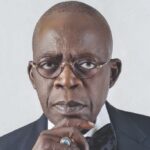


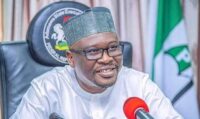
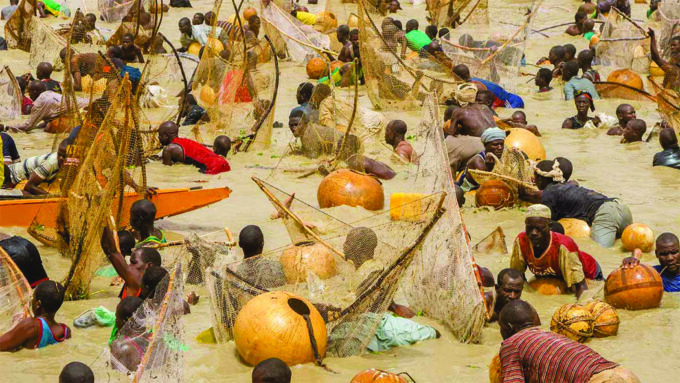
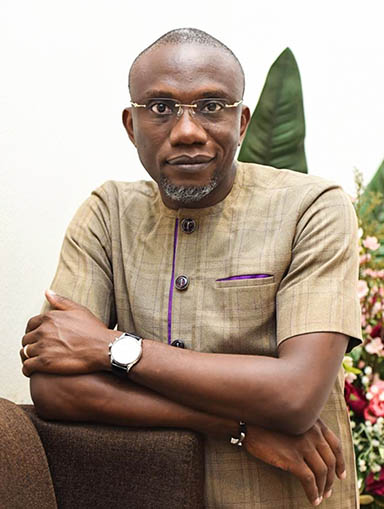

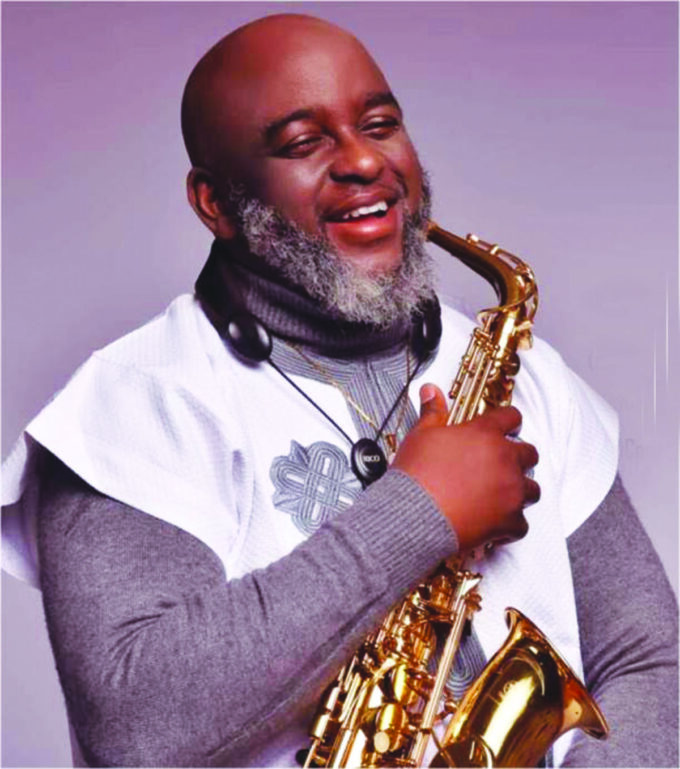


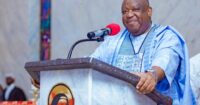
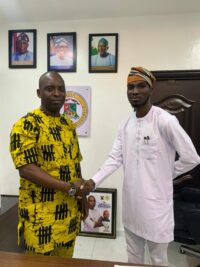

Leave a comment